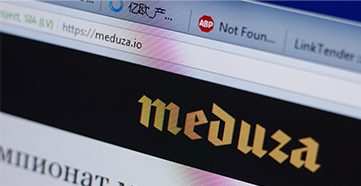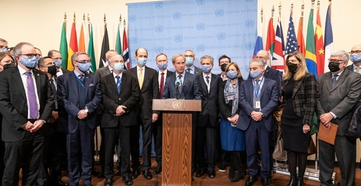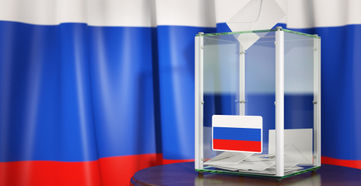Invasion of Ukraine prompts law firms to exit Russia en masse

In the space of just two weeks, 26 international law firms unceremoniously announced they were closing their Russian offices following the country’s aggression in Ukraine. Some have been in Russia for 30 years. But, as the brutal reality of the conflict has unfolded, it’s become clear there was no alternative but to leave.
Linklaters, which opened an office in Moscow in 1992, was among the first to announce publicly its intention to wind down ‘existing work’ and not take on future mandates ‘for individuals or entities that are controlled by, or under the influence of, the Russian state, or connected with the current Russian regime, wherever they are in the world.’
This isn’t the first time law firms have been forced to carefully consider their presence in Russia. Many international firms downsized their operations after Russia annexed Crimea in 2014. Since then, there’s been immense pressure to justify bottom lines in a market where sanctions have taken their toll, profits have languished and compliance requirements from clients have steadily increased.
Global Insight contacted a number of firms and lawyers in Russia, but the increased crackdown on free speech and anti-war rhetoric has made many reticent to comment. Apart from official statements, most remain tight-lipped about the circumstances and details of their departures.
Domestic firms continue to operate mostly business-as-usual, but the picture is very different for those working at international law firms. ‘People were told overnight to either leave the country and work from Dubai or told that the firm would not support them,’ one senior Russian lawyer, who cannot be named for security reasons, tells Global Insight. ‘People are in extreme stress. It's not only the military or geopolitical situation, it's also that their own lives have been broken into pieces.’
I think the spotlight now is so intense and I think that is probably a new experience for most firms. Anyone who thought that didn't exist has woken up
Jeroen Ouwehand
Senior partner, Clifford Chance
She says there are growing concerns that the mass exodus could lead to a severe legal ‘brain drain’ in Russia. ‘We will see a lot of talented senior lawyers exiting the market,’ she says. ‘Highly qualified people will stay and set up their own firms or will leave, either because they simply disagree with the regime or haven't earned enough money and will leave anyway.'
In practical terms, the prospects domestically seem increasingly limited as major technology companies including Microsoft, Apple and Dell have suspended product sales in the country, making it almost impossible to purchase the equipment required to set up a law firm.
More than 600 companies have exited Russia since the invasion, according to research compiled by the Yale Law School of Management. While many have completely withdrawn, others maintain clients, business links or even some operations in the country.
Like other businesses, the pressure on law firms to sever all ties with Russia has been intense. However, Michael O’Kane, a senior partner at Peters & Peters in London, says firms must tread carefully. ‘I do think that at a time of war in Europe, when there is a threat of a Third World War, that it is understandable that law firms would not want to be seen to be acting for clients who are participating in, facilitating in some way or supporting the war effort,’ he says. ‘But to cast all Russians as having "dirty money" or being in some way complicit is totally wrong.'
Chris Owen, a partner at Pennington Manches in London and Co-Chair of the IBA European Regional Forum, says the conflict has brought the severity of the rule of law crisis facing the region to the fore. ‘It has been increasingly apparent that international law firms cannot simply ignore the broader Rule of Law challenges in many parts of Eastern Europe,’ he says. ‘There is a growing appreciation of seeing Rule of Law in its broader context: including media freedom, robust civil society, predictable administrative procedures, lack of corruption, judicial independence etc. These issues need to be addressed and not shied away from.’
Owen says it also points to broader environmental, social and governance issues: ‘The spotlight is shining on international law firms and their ethics. We need to recognise that we do have choices and that we have to exercise our judgement in who we work for. And if we get it wrong it can have huge reputational issues.’
On 10 March, Clifford Chance announced it was taking ‘steps for an orderly wind down of’ its Moscow operations. Jeroen Ouwehand, the firm’s senior partner, told Global Insight that the conflict and subsequent media scrutiny had ‘highlighted public attention’ on law firms and their conduct like never before. ‘That’s not the primary reason for making decisions,’ he says, ‘For me – I’m sure I’m not speaking only for myself when I say – it starts with our own values. So it's intrinsic. Reputation, external pressures, social media and press come second. But I think the spotlight now is so intense and I think that is probably a new experience for most firms. Anyone who thought that didn't exist has woken up.’
As growing numbers of Russian lawyers are believed to have relocated to Dubai, it’s uncertain what impact this will have on the legal market there, says Robin Abraham, Clifford Chance’s Executive Partner and General Counsel and the firm’s former Regional Managing Partner for the Middle East. ‘If you're in Moscow at the moment the only places really that are easily accessible outside Asia are Istanbul and Dubai,’ he says. ‘It’s also relatively easy, if not cheap, to get a visa to become a resident in Dubai. If you then want to go on and practise law in Dubai itself, it's actually quite highly regulated, so I think we will just have to watch this space and see how that develops.’
Image credit: Russian Passport in municipal institution. vvoltv/AdobeStock.com




